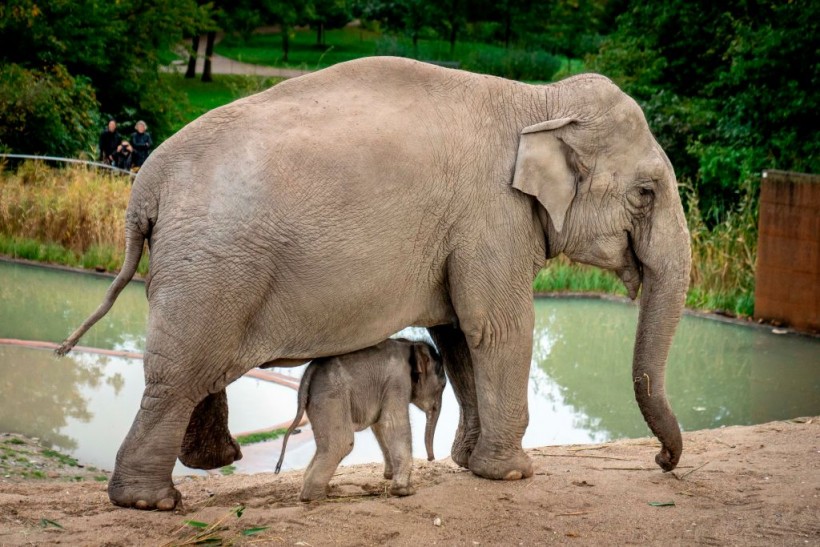A new study recently found that elephants, similar to their African cousins, appear to mourn their dead, sometimes even carrying their dead babies in their trunks for days or weeks.
As specified in a Live Science report, whether elephants similarly understand death as humans do, remains unknown and perhaps, unknowable.
Asian elephants, like their African cousins, seem to mourn their dead, sometimes carrying their lost infants for days or weeks. https://t.co/EAupL5X7ND
— How It Works (@HowItWorksmag) May 21, 2022
However, Asian elephants, known as Elephas maximus, are social creatures, and the new study contributes to the evidence that they experience a kind of emotional response when losing one of their own.
According to Sanjeeta Sharma Pokharel of the Smithsonian's National Zoo and Conservation Biology Institute and Nachiketha Sharma of the Kyoto University Institute for Advanced Study, the study's co-authors, understanding the response of elephants might have some far-reaching impacts on their conservation.
They also said that they have observed that when people are witnessing an elephant responding to dead kin, "there will be a sense of relatedness, compassion, and empathy towards the said species.
As a result, anything which quickly connects humans might pave the way for coexistence in elephant range countries.

A study reveals that elephants, similar to their African cousins, appear to mourn their dead, sometimes even carrying their dead babies in their trunks for days or weeks.
Emotional Reaction
African bush elephants, also called the Loxodonta africana, as detailed in a report from the Animal Diversity Web site, have long been observed to have reacted emotionally when a member of the herd dies.
They might come close to the body and touch it using their trunks, kick at the corpse or stand near it as if it's on guard. Asian elephants, though, are less well-understood.
They are inclined to live in forested habitats, so they are more challenging to observe in the wild than savanna-dwelling African elephants.
Senior vice president for life sciences at the Denver Zoo, Brian Aucone, who was not part of the study published in the Royal Society Open Science journal, explained that these elephants could be 100 feet or 30 meters away, and one might not see them as the forest is very dense.
A Striking Elephant Behavior
To achieve their finding, Pokharel and Sharma, along with their co-author Raman Sukurman from the Indian Institute of Science, at the time turned to YouTube, where amazing animal videos are a staple.
They searched the site for keywords linked to Asian elephants and deaths and unveiled 39 videos of 24cases from 2010 to 2021 in which one or more Asian elephants were observed reacting to the loss of a herd mate.
Consequently, 80 percent of the video revealed wild elephants, 16 percent captive elephants, and four percent semi-captive elephants. Usually, semi-captive elephants are animals working in the timber industry or industrial parks in Asia.
Some of the most striking behaviors observed in the videos occurred when a calf died. In five of 12 videos that showed a dead calf, a female adult, likely the mother, was observed carrying the calf.
Related information about mother elephants giving birth to and carrying a dead baby is shown on Reproduction Live TV's YouTube video below:
RELATED ARTICLE: Singapore Destroys Nine Tons of Ivory Tusks On the Eve of World Elephant Day
Check out more news and information on Elephant in Science Times.














